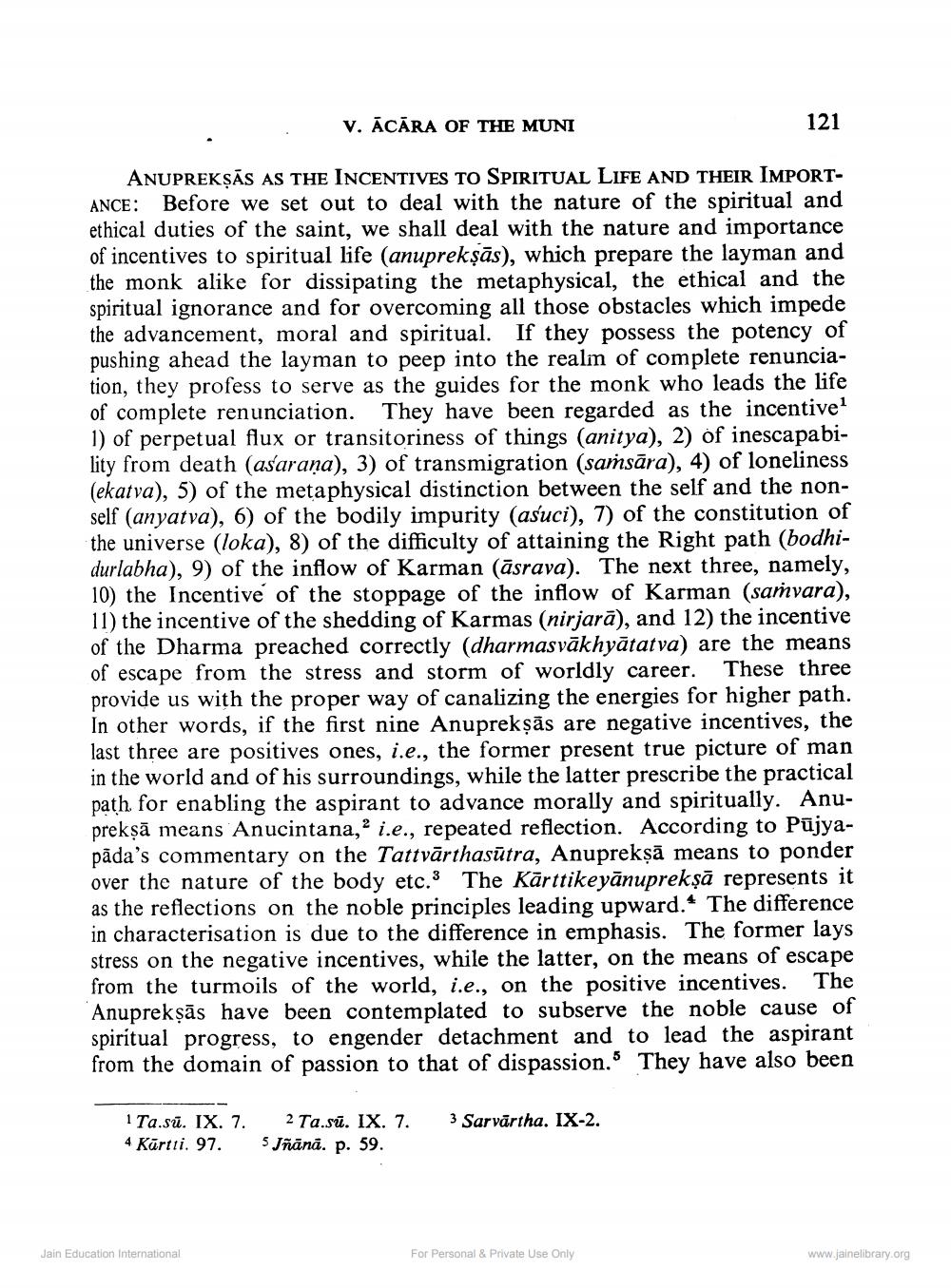________________
V. ĀCĀRA OF THE MUNI
121
ANUPREKŞĀS AS THE INCENTIVES TO SPIRITUAL LIFE AND THEIR IMPORTANCE: Before we set out to deal with the nature of the spiritual and ethical duties of the saint, we shall deal with the nature and importance of incentives to spiritual life (anupreksās), which prepare the layman and the monk alike for dissipating the metaphysical, the ethical and the spiritual ignorance and for overcoming all those obstacles which impede the advancement, moral and spiritual. If they possess the potency of pushing ahead the layman to peep into the realm of complete renuncia
, they profess to serve as the guides for the monk who leads the life of complete renunciation. They have been regarded as the incentive? 1) of perpetual flux or transitoriness of things (anitya), 2) of inescapability from death (asarana), 3) of transmigration (samsāra), 4) of loneliness (ekatva), 5) of the metaphysical distinction between the self and the nonself (anyatva), 6) of the bodily impurity (asuci), 7) of the constitution of the universe (loka), 8) of the difficulty of attaining the Right path (bodhidurlabha), 9) of the inflow of Karman (āsrava). The next three, namely, 10) the Incentive of the stoppage of the inflow of Karman (samvara), 11) the incentive of the shedding of Karmas (nirjarā), and 12) the incentive of the Dharma preached correctly (dharmasvākhyātatva) are the means of escape from the stress and storm of worldly career. These three provide us with the proper way of canalizing the energies for higher path. In other words, if the first nine Anupreksās are negative incentives, the last three are positives ones, i.e., the former present true picture of man in the world and of his surroundings, while the latter prescribe the practical path for enabling the aspirant to advance morally and spiritually. Anuprekṣā means Anucintana, ? i.e., repeated reflection. According to Pūjyapāda's commentary on the Tattvārthasūtra, Anupreksā means to ponder over the nature of the body etc.3 The Kārttikeyānuprekşā represents it as the reflections on the noble principles leading upward.* The difference in characterisation is due to the difference in emphasis. The former lays stress on the negative incentives, while the latter, on the means of escape from the turmoils of the world, i.e., on the positive incentives. The Anupreksās have been contemplated to subserve the noble cause of spiritual progress, to engender detachment and to lead the aspirant from the domain of passion to that of dispassion. They have also been
3 Sarvārtha. IX-2.
1 Ta.sū. IX. 7. 4 Kārtii. 97.
2 Ta.sū. IX. 7. 5 Jñānā. p. 59.
Jain Education International
For Personal & Private Use Only
www.jainelibrary.org




